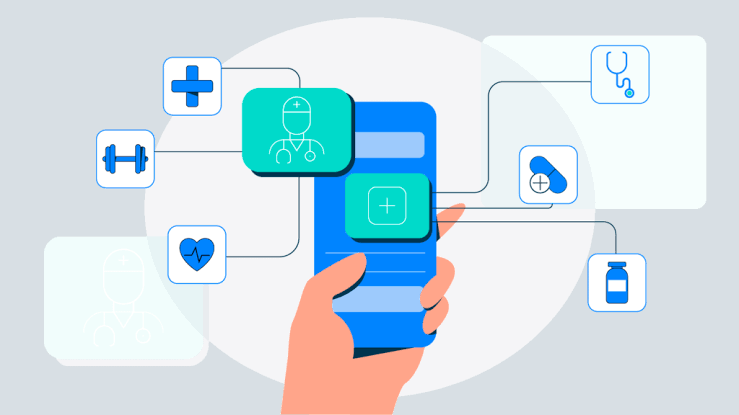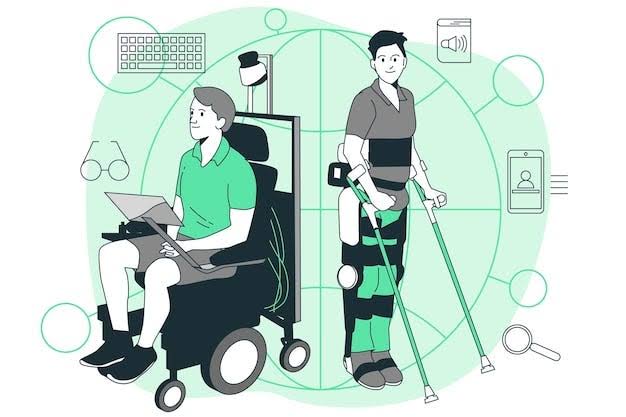In today’s fast-paced digital world, mobile health applications, commonly known as mHealth apps, are transforming how people manage their health. These applications, accessible through smartphones and tablets, provide tools for monitoring wellness, tracking medical conditions, and even connecting patients with healthcare providers. The widespread adoption of mHealth apps is making healthcare more accessible, personalized, and efficient, especially as more individuals seek convenient ways to maintain healthy lifestyles.
Improved Accessibility to Healthcare
One of the most significant benefits of mobile health applications is their ability to make healthcare more accessible. In many regions, visiting a clinic or hospital can be time-consuming or even challenging due to distance and costs. With mHealth apps, people can access essential health information, book consultations, or monitor their conditions right from their devices.
These apps also support individuals in remote areas where healthcare infrastructure may be limited. By using telemedicine features, patients can interact with doctors through video calls or chat functions, eliminating the need for frequent hospital visits.
Better Health Monitoring
Mobile health applications empower individuals to take charge of their health by allowing them to monitor vital signs, symptoms, and fitness levels daily. Many apps are integrated with wearable devices such as smartwatches and fitness trackers. These tools provide real-time data on heart rate, sleep quality, physical activity, and calorie intake.
Regular monitoring helps users stay aware of their overall health. For patients with chronic illnesses such as diabetes or hypertension, daily tracking ensures early detection of irregularities, which can prevent serious complications.
Encouragement of Healthy Lifestyle Choices
Mobile health apps play a motivational role by encouraging healthier habits. Many applications are designed with reminders and goal-setting features that prompt users to exercise, drink water, eat balanced meals, or take prescribed medications on time.
Gamification features, such as rewards, progress badges, or daily challenges, make the journey more engaging. This kind of encouragement fosters accountability and consistency, making it easier for individuals to adopt long-term healthy routines.
Enhanced Communication with Healthcare Providers
A major benefit of mHealth apps is the ability to maintain seamless communication between patients and healthcare providers. Through secure messaging and teleconsultation options, users can share health records, test results, or symptom logs directly with their doctors.
This improves the quality of care since doctors can make more informed decisions using up-to-date patient information. It also reduces the burden of in-person visits, especially for follow-ups or minor consultations, saving both time and money.
Personalized Health Insights
Mobile health applications use advanced technologies such as artificial intelligence and machine learning to provide personalized health recommendations. Based on collected data, these apps can generate insights tailored to a person’s lifestyle, medical history, and daily habits.
For example, a nutrition app may suggest meal plans based on calorie goals, allergies, and fitness activity. Similarly, a fitness app might adjust workout intensity depending on past performance. This personalized approach makes health management more effective and user-friendly.
Cost Savings for Patients
Healthcare expenses can be overwhelming for many people. Mobile health applications offer a cost-effective alternative by reducing the need for unnecessary doctor visits, minimizing emergency cases through preventive care, and providing free or low-cost resources for health education.
Patients can track their health independently, reducing dependency on costly medical tests for routine monitoring. This makes healthcare more affordable and practical, especially for low-income individuals or families.
Data-Driven Preventive Care
Another key advantage of daily use of mHealth apps is the focus on preventive care. With consistent data collection and analysis, these apps can alert users to early warning signs of potential health problems.
For example, sudden changes in sleep patterns, weight fluctuations, or irregular heart rhythms can be detected quickly. This allows individuals to take preventive measures or seek medical help before the issue worsens, ultimately improving long-term health outcomes.
Increased Patient Engagement
Mobile health applications encourage patients to be more engaged in their own health journeys. By giving individuals access to their medical history, lab results, and health progress, these apps promote transparency and awareness.
Engaged patients are more likely to follow treatment plans, take medications as prescribed, and adopt healthy behaviors. This proactive participation improves treatment effectiveness and strengthens the relationship between patients and healthcare providers.
Conclusion
The daily use of mobile health applications offers numerous benefits, ranging from better accessibility and improved monitoring to personalized insights and cost savings. These apps empower individuals to take control of their health while also supporting healthcare professionals with reliable patient data. As technology continues to advance, mHealth apps are expected to play an even more critical role in promoting preventive care, enhancing communication, and making healthcare more efficient and affordable.




Basilica Cistern tour Topkapi Palace tour exceeded my expectations. https://tropicaliacasadosapateiro.com.br/?p=62345